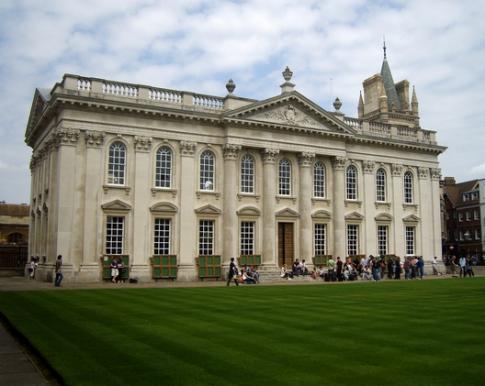More private school pupils applying to foreign universities

Rising numbers of pupils from the country’s leading private schools are turning their backs on top British universities in favour of degree courses abroad, according to new research.
By Graeme Paton, Education Editor
Figures suggest nine out of 10 headmasters have witnessed an increase in sixth-formers seeking courses in the United States, Holland, Canada and Australia over the last two years.
It is claimed that a rise in fees in England – combined with the prospect of enhanced career prospects abroad – is pushing some of the country’s brightest young minds overseas.
The disclosure follows the publication of figures showing that top US universities are reporting a rise in the number of places awarded to students from the other side of the Atlantic over the last 12 months.
Members of the elite Ivy League such as Yale, Princeton, Columbia and Pennsylvania told how entry rates among British students were in up 2012/13 compared with a year earlier.
The University of California, Berkeley, and the University of Michigan also witnessed rises.
Many other universities – particularly from mainland Europe – are actively marketing themselves to British students and offering courses in English to attract the best talent.
It will reignite concerns over a “brain drain” of bright undergraduates to foreign countries.
The latest research was based on a sample of members of the Headmasters’ and Headmistresses’ Conference, which represents around 250 of Britain’s leading independent schools including Eton, Harrow, Winchester and St Paul’s.
According to the study, which was commissioned by Maastricht University, 91 per cent of heads said sixth-formers had become more interested in applying to universities overseas this year compared with 2011 – before annual tuition fees were raised to up to £9,000. This included almost a third who claimed there had been “much more” focus on foreign institutions.
The proportion was much higher than those responding to the question when it was last posed two years ago, when just 60 per cent claimed there was rising interest in courses in other countries.
Chris Ramsey, head of King’s School, Chester, and chairman of HMC’s universities committee, said: “Thinking about higher education is more imaginative than it used to be. Young people are not taking for granted that they have to go to university in the UK.”
Anthony Seldon, the Master of Wellington College, Berkshire, said 40 per cent of his school’s pupils were now seriously considering universities overseas – mostly in the US, followed by Canada, France and Germany.
He cited “better job opportunities, better funding and broader job opportunities” as the main draws.
Keith Budge, the head of Bedales School, Hampshire, which has seen one-in-20 sixth-formers take courses abroad, said: “The fact is £9,000 fees have made students and parents see the university experience as more of a commodity which means they will compare the UK experience with that they can get overseas. You can now get English medium courses in Europe with virtually no fees.”
Some 82 per cent of heads said schools were now “more actively encouraging” sixth-formers to consider overseas study as part of their higher education options.
When asked for the reason for increased interest in overseas study, almost half of headmasters cited rising tuition fees in Britain, while others cited increased awareness in international universities and potential for enhanced career prospects.
Some 34 heads – just over one-in-eight – HMC members were questioned as part of the study.
Prof Rein de Wilde, dean of the faculty of arts and social sciences at Maastricht University, said the number of British students admitted to the institution had grown threefold to 300.
“The feedback we have from these students suggests that a key attraction is the fact that a foreign degree can open up new career opportunities and employers really value graduates with experience of studying and working abroad,” he said.




 del.icio.us
del.icio.us Digg
Digg

Post your comment